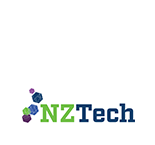By Mitchell Pham, Chair of the Digital Council for Aotearoa New Zealand.
Personal data is taonga, something to be treasured and held dear. This requires those who gather and use data to enact the principles of tika, pono and aroha — doing the right thing, in the right way, with integrity, and with care.
Aotearoa is in a unique position through Te Tiriti to strongly advocate for keeping sovereignty, privacy, trust and ethics at the heart of collecting and using data. This obligates those who gather and use data to consider how Māori have ownership of data and its use, and their own measures of wellbeing.
We must also surface the limitations of data and the role of social, economic, political and cultural bias in collecting, analysing and interpreting data.
Trust is key
Trust and trustworthiness are key factors in unlocking the potential of digital technologies for social and economic wellbeing. Those who collect data must be worthy of trust.
This is something we’re exploring with some of our marginalised communities at the moment in relation to automated decision-making.
There are many great uses of automated decision-making, but if not used responsibly, there is potential for significant negative impacts for Aotearoa, and especially for people who are already disadvantaged or marginalised.
Ethics guide us
There are several principles, guidelines and tools that guide us in Aotearoa around applying ethics to data.
These include the OECD principles of responsible use of AI, the New Zealand Principles for safe and effective use of data and analytics, the Algorithm Charter and a Ngā Tikanga Paihere framework.
The Algorithm charter for Aotearoa New Zealand demonstrates a commitment to ensuring New Zealanders have confidence in how government agencies use algorithms. The charter is one of many ways the government demonstrates transparency and accountability in using data.
Ngā Tikanga Paihere is a framework and tool that:
- guides safe, responsible, and culturally appropriate use of data
- ensures data use is carefully considered
- ensures data practices occur in good faith.
Investing in ‘sensor ready’ not only ‘shovel ready’
Another theme Mitchell raised in the DataCon panel discussion was redefining ‘shovel ready’ as ‘sensor ready’. Using ‘big data’ is critical to Aotearoa’s ability to sense and respond with agility to people’s changing needs, as well as worldwide events like the COVID pandemic. In order to keep the economy steady, if not growing, the New Zealand Government needs to create a new digital infrastructure for New Zealand.
Part of this involves helping small and medium enterprises to use big data to help them plan, create and run their businesses successfully. Our work with small and medium businesses suggests that they are missing a crucial skill in interpreting insights from a variety of data sources.
We have a limited pool of skilled people to help with and work in this space and we need to build alliances across Aotearoa and the Asia Pacific region to share advice, talent and systems to make positive, lasting change.
Meantime, our government also needs to understand digital trade better — it’s still not widely understood. We need to measure it better and advocate for access to data from international platforms like Facebook and Google for businesses to develop their plans and strategies. The Government could also look at ways to encourage Google and Facebook and other leading online platforms to ensure that local marketplaces and retailers are given prominence over international players.
Aotearoa’s unique standing place
Which brings us back to our own unique standing place in Aotearoa. We may be small, but we can still have big ideas and lead the conversation for keeping sovereignty, privacy, trust and ethics at the heart of collecting and using data.
Activity Summary
We’ve started an intense period of focus groups surfacing the experiences, aspirations, hopes and challenges around digital and data driven technology. We have focus groups coming up over the next few weeks with Māori, Pacific youth, Blind and Low Vision NZ, youth care providers, refugee and migrant communities, taxi drivers.
Mitchell Pham will be presenting this week at the University of Canterbury’s webinar, How will Asia’s digital innovation impact on NZ businesses?






